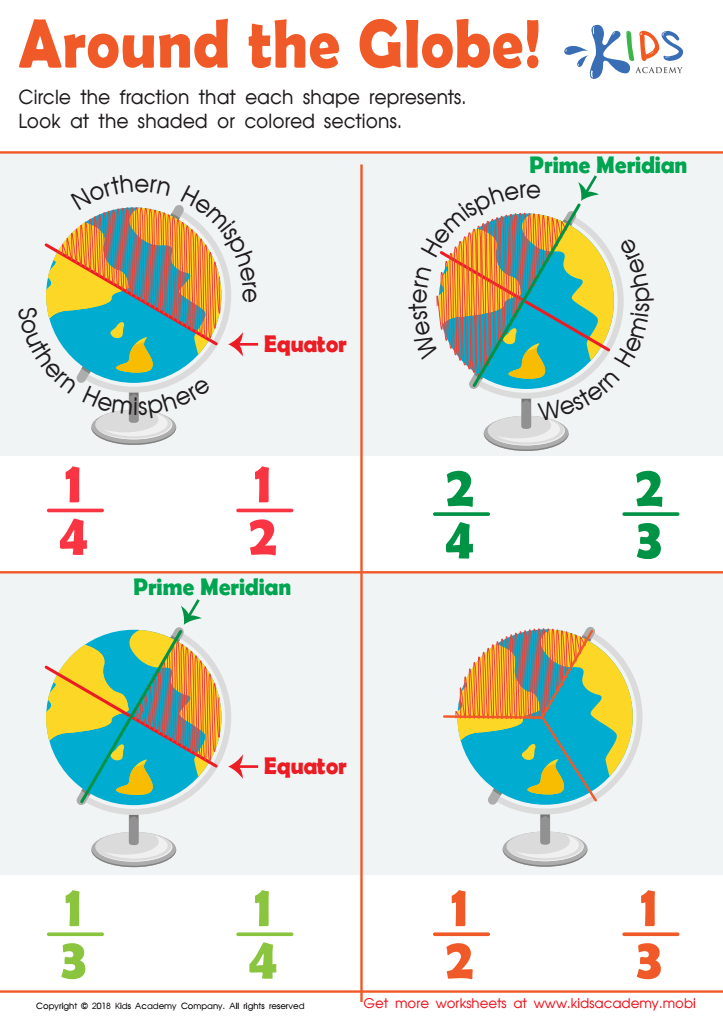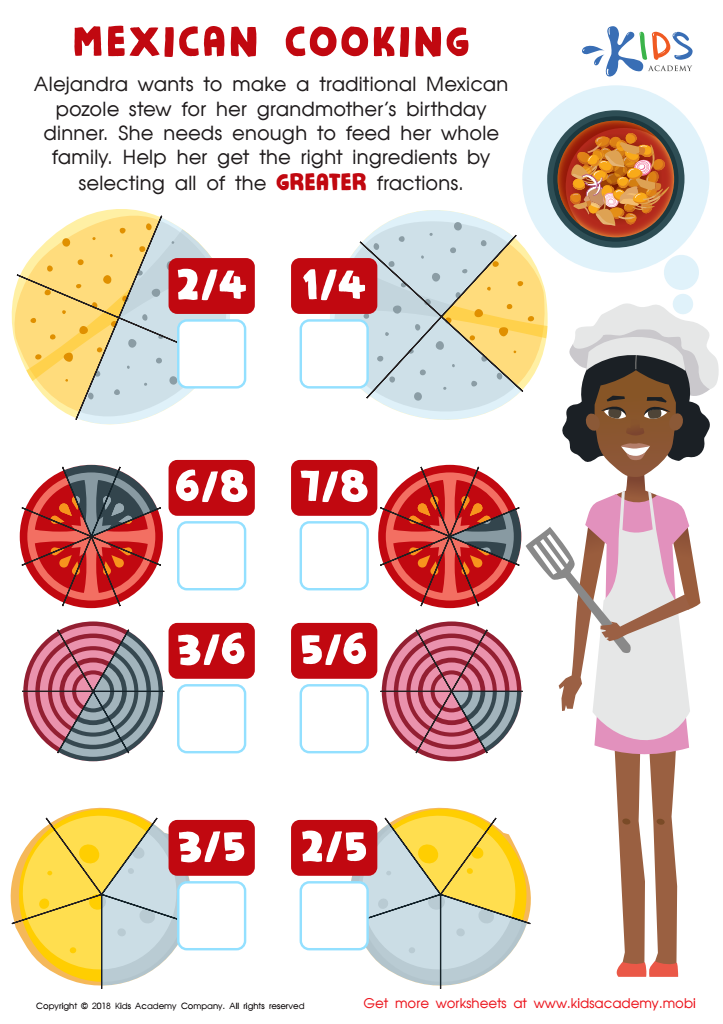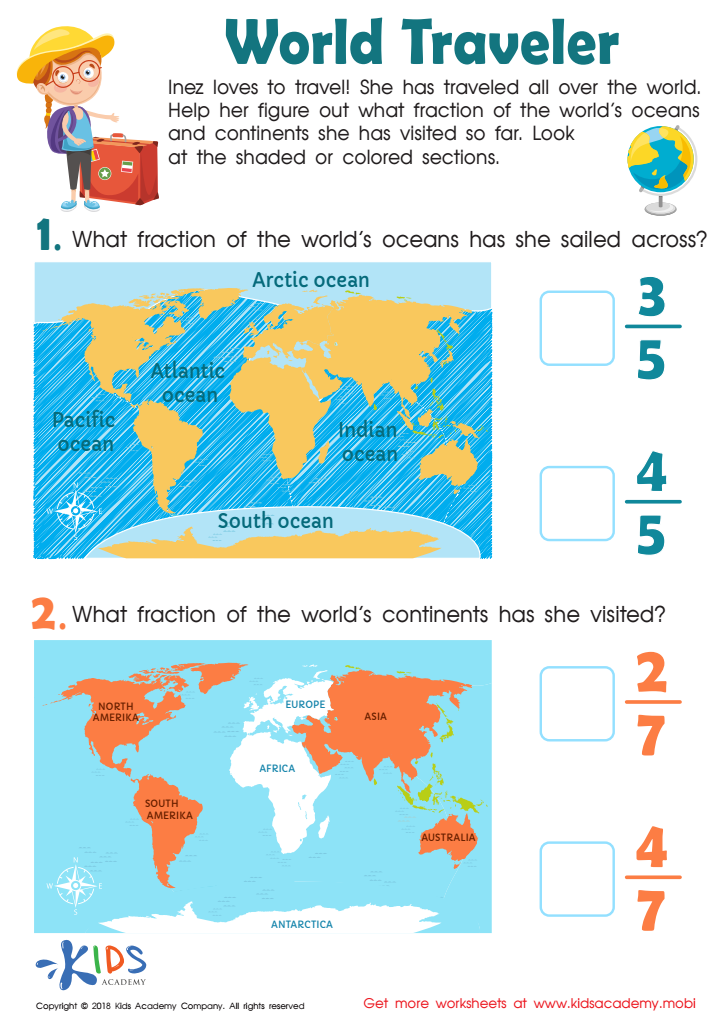Cultural awareness Normal Numbers Worksheets for Ages 8-9
3 filtered results
-
From - To
Elevate your child's math skills with our "Cultural Awareness Normal Numbers Worksheets" tailored for ages 8-9. These engaging worksheets blend numerical exercises with rich cultural insights, fostering a deeper understanding among young learners. Pupils will master counting, comparing, and sequencing numbers while exploring diverse cultures. Each worksheet is meticulously designed to improve mathematical proficiency and cultural awareness simultaneously. Ideal for classrooms and at-home learning, these resources encourage kids to appreciate global diversity through numbers. Explore the world with our vibrant and educational worksheets, and watch your child gain confidence in math while embracing multicultural values.


Around the Globe Worksheet


Mexican Cooking Worksheet


World Traveler Worksheet
Cultural awareness is the understanding and appreciation of cultural differences and similarities within and among groups. Teaching cultural awareness to children ages 8-9 is crucial for several reasons, and incorporating it into lessons about 'normal numbers' (commonly used numbers in everyday life such as currency, dates, or quantities related to cultural practices) offers practical benefits.
Firstly, early exposure to cultural diversity helps children develop empathy and reduces prejudices. As children learn about different numerical representations from various cultures, they become more open-minded and respectful towards traditions different from their own, fostering inclusivity and global citizenship.
Secondly, cultural awareness enhances cognitive development. Engaging with a variety of cultural contexts when learning numbers strengthens problem-solving skills and critical thinking. For instance, understanding how different cultures utilize and interpret numbers can deepen mathematical comprehension and improve adaptability.
Moreover, preparing children for a globalized world is fundamental. As future citizens, they will interact with people from diverse backgrounds. Knowledge of cultural differences in numerical usages, such as holidays, money, or language, aids in effective communication and collaboration.
Incorporating cultural awareness into math lessons enriches the educational experience by making learning relevant and comprehensive, thereby producing well-rounded, socially conscious, and intellectually agile individuals. Teachers and parents, therefore, play a pivotal role in shaping a more harmonious and understanding future society.
 Assign to My Students
Assign to My Students





















